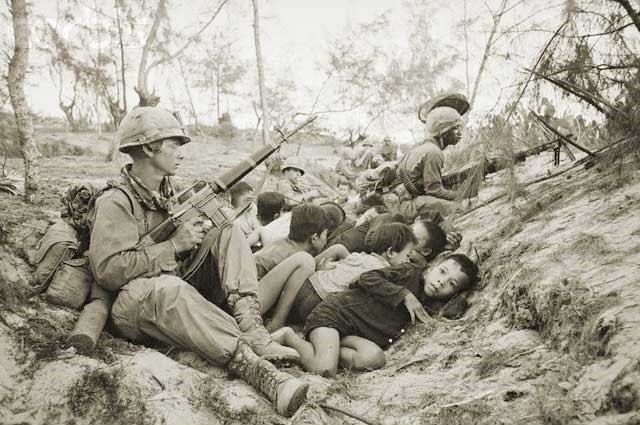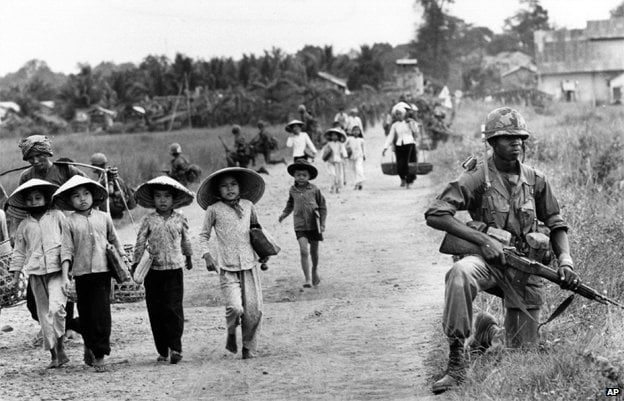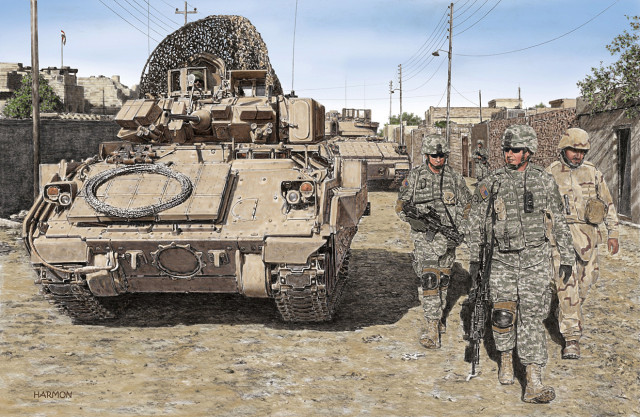Half a century after his election, President John F. Kennedy’s cabinet is still hailed as one of the most intellectually gifted and qualified group of men to ever advise a President. Coming from institutions such as Yale, Harvard and Georgetown, among others, they were quickly dubbed as the ‘Best and the Brightest,’ the ideal men to take the nation towards a brighter future. And yet, with every fiasco in Cuba, Berlin and Vietnam, these aspirations gave way to exasperation, which soon turned to sour disappointment. And whaling in this disappointment, did these almost mythical figures of American authority find themselves part of an unfolding Shakespearean tragedy, their lives and their decisions forming the basis of many a book, including David Halberstam’s 1972 seminal piece on the origins of the Vietnam War titled ‘The Best and the Brightest.’
There is a common myth that Vietnam began with the escalation under Kennedy and later, Johnson. However, it truly began when Truman disposed FDR’s legacy against imperialism to coddle the wounded French pride by acceding Indochina to them. A throwback to World War I, when the U.S had given its consent to British and French mandate to unilaterally divide the spoils of the Ottoman Empire among them, with retrospectively grave consequences.

The surge, if not the war however, was Kennedy’s legacy who ironically enough, intended to win Vietnamese hearts without force but soon after a year in office, Kennedy was signing off orders to use force. The same policy would be followed by his successor, who would later become the only President to lose an election because of Vietnam. The ‘Best and the Brightest,’ defeated by people, the State Department wryly called the ‘little yellow men,’ people they didn’t understand and sorely underestimated.

Cut to fifty years later, President Bush came to power with his own clique of intellectual warhorses in the form of Rumsfeld, Powell and Cheney. However, history repeated itself as soon, the U.S found itself in another war of choice, based of ill-gotten evidence of WMD’s in Iraq. By the time, the U.S did withdraw a decade later, over a thousand American and allied lives were lost and a greater, and tellingly an unaccounted number of Iraqi civilian casualties to a bloody insurgency.
Historical references such as the Vietnam fiasco and Gulf War II offer identical discourses on the fatal flaws that remain ingrained and unchecked in the minds of any superpower; the characteristic of assuredness, of confidence in one’s own ability and the overzealousness to use it. The ‘Best and the Brightest’ minds of the time, all had that significant imperfection of invincibility; comfortable in their arrogance and satisfied in their folly. If Vietnam served as an example as to how an illusion of conceited control spiraled into disgrace, the Iraq intervention served to remind the world how much countries still depended on hard power rather than soft power and diplomacy, sixty years after the end of the Great War.

Today, the U.S and NATO have helped themselves to a limited role against the ISIS by regular raids from the air, raids which have certainly slowed their advance in Baghdad and Syria. Yet, one cannot help but think about the relative prudence of instead mending the fractured mandate the British imposed so long ago, by strengthening the local Iraqi and Kurdish troops. Effective they may be, but air raids do not win wars, let alone win hearts to make a friend of an enemy. That should be a lesson that must have been learned long ago when the U.S rained Napalm to burn all the Vietnamese forests to the ground only to be held back once again. Perhaps, the fact that a nation like the U.S acts as predictable as it does has to do with the same template and lens it sees all other nations under.
The exclusive use of hard power as currency is evidence of the foolish peace the world has been made to believe in post WWII and the U.N. And perhaps, it is this very predictability that reflects the lazy arrogance ‘Great Satan’ has always been accused of having. ‘Best and the Brightest’ they might be, but ultimately, their policy to attack rather than reconcile fails them.
Capability, military and otherwise is reduced to a mere factor in modern warfare as is evidenced by the failure in policing states like Iraq and Afghanistan. The fact that both the Iraqi and Afghan intervention came down to being a military exercise, without involvement of regional case officers or the State is evidence of the same flaw. And sadly, this flaw doesn’t show any sign of abating as is seen by the response to any event across the globe such as in Yemen or Libya.
There was a small hint of truth when Mao once said that reading people was more important than reading minds. Often, the greatest minds are clouded by the grays of rationality and technicalities, which makes them oddly more timid to any other possibilities. In a case study, a Harvard paper published in the late 1970’s prophesied that the end of the Cold War lay in making the Soviets overspend and stretch themselves (a fact made increasingly true by their foray into Afghanistan) which was unceremoniously dumped after presentation to the Special Activities Division. The acceptance of such great minds as human, as erring humans with perhaps the same flaws as the rest is critical to a broader understanding of our problems in war and peace.
Aldous Huxley once said, ‘That men do not learn very much from the lessons of history is the most important of all the lessons of history.’ Unfortunately, history is a witness to the truth of that as well until we allow great minds, the ‘Best and the Brightest’ to make mistakes as they inevitably would, and allow them to correct themselves.
By- Jibin Mathew George

































